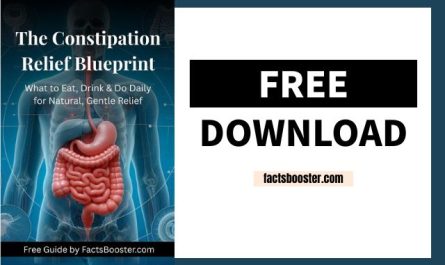Have you ever noticed this—always tired after 40? Even when you haven’t done anything major, you feel exhausted all day. Climbing a flight of stairs leaves you winded, carrying a bag makes your arms sore, and by the time you get home, you don’t even have the energy to change your clothes.
I used to think I was relatively healthy. Even though I had knee surgery and an ovarian tumor removed before turning 40, I recovered well and never imagined that my energy would become a problem. But in the past couple of years, things have started to feel noticeably different.
Getting out of bed in the morning feels like starting with an empty battery; by mid-afternoon, my energy starts to drop; and at night, I toss and turn, unable to sleep deeply. I’ve had several checkups, and doctors tell me, “Your results look great.” But I know something isn’t quite right. That fatigue isn’t just being tired—it’s a full-body heaviness, like a balloon that hasn’t deflated but you can’t lift it.

Women Always Tired After 40
Have you experienced this? The following are all my personal observations.
Always Tired After 40: Why Even Simple Tasks Drain You
I began to notice that women’s energy really starts to decline—so much so that you feel always tired after 40. Doing household chores became more exhausting. Tasks I could once complete in one go—mopping, laundry, cooking—now had to be broken up into segments, with breaks in between.
Climbing stairs is even harder, with my legs feeling like they’re filled with lead, leaving me breathless after just one flight.
Work feels challenging too. By mid-afternoon, while sitting in front of my computer, my mind is still alert but my body doesn’t want to move. That feeling of your mind being ahead while your body lags—only someone experiencing it can truly understand. I used to think a good night’s sleep would fix it, but now, even long sleep doesn’t fully recharge me.
Sleep Issues: Sleeping More, Yet Feeling Shallow
What troubles me most is sleep. Before 40, I slept well, usually 7–8 hours with good dreams. Now, I often wake up in the middle of the night—sometimes around 2 a.m.—and struggle to fall back asleep, even though I’m exhausted. My mind starts racing, keeping me awake. (1)
During the day, I feel foggy and unfocused. Even after 4–5 hours of sleep, I wake up feeling unrefreshed, which can be incredibly draining. I later realized this is due to hormonal changes. Declining estrogen affects both sleep and mood, making it harder for the body to fully recover.
Muscle and Joint Pain: Stiffness Creeps In
Women often notice their energy dropping after 40 in ways they don’t expect—through aches that appear even without activity. I used to think soreness came from overdoing exercise. Now, I feel it even when I’m still.
My shoulders, neck, and back often feel stiff, like they’re glued together. Even lifting a pot or hugging a pillow makes my arms ache. Sometimes my ankles and knees tighten, and my fingers feel stiff in the mornings. If you’re always tired after 40, you’ll recognize this kind of lingering soreness—it’s not severe enough to be considered a “problem,” but cumulatively, it makes you feel heavy and sluggish all day.
Eventually, I realized this is due to muscle loss. After 40, if we don’t actively maintain muscle, our strength declines and joints take on more pressure.
Mood and Focus: Even Emotions Get Tired
I used to be able to multitask—cook, talk on the phone, help my kids with homework, all at once. Now, sometimes I forget what someone just said before finishing their sentence.
My mood has also become more sensitive. Small annoyances can trigger frustration; stress can feel unbearable. Sometimes it’s not that I want to feel this way—it’s that my body physically can’t keep up with my mind. It’s like a computer running out of memory: tasks remain unfinished while the system starts lagging.
I didn’t understand this “brain fatigue” before and thought I just wasn’t strong enough. Now I know it’s a combination of hormonal and metabolic changes—body, mind, and emotions all slowing down together. (2)
Shortness of Breath: Even Walking Becomes Hard
Women’s energy declines after 40, and even simple daily activities can feel taxing. Sometimes just going to the market leaves me short of breath if I walk quickly. My heart races, breathing becomes shallow, and I feel a little dizzy or weak.
Before, this only happened when I was sick. Now, it’s part of everyday life. My stamina isn’t limitless like it used to be. I’ve learned to slow down and not push myself, though I still feel a twinge of disappointment—moving from “I can do anything” to “I have to pace myself” takes time to accept.
Always Tired After 40: How Your Energy Can Change Overnight
The most frustrating part is the unpredictability. Some days, after good sleep and proper meals, I feel energetic all day. But if you’re always tired after 40, even one late night can leave you drained the next day. These fluctuations are unsettling—you never know if you’ll have enough energy tomorrow.
I’ve started observing my patterns: when I feel most fatigued, which foods affect my energy, and which activities help me recharge. Gradually, I realized that energy levels can actually be managed with awareness and care.
Learning to Listen to Your Body
After 40, your body isn’t the same machine it was in your 20s or 30s. It’s more sensitive, more selective, and honest. It signals fatigue to prevent overexertion, stiffness to encourage stretching, and restless sleep to warn of stress.
I’ve learned to acknowledge these signals rather than fight them. I’ve also adjusted my lifestyle:
- Daily walks or light exercise
- Reducing late nights and avoiding overly greasy or sugary foods
- Setting aside “downtime” instead of pushing for maximum productivity
Understanding Yourself After 40
Before 40, we were used to being strong—working full time, caring for family, managing responsibilities. We almost always ignored the body’s signals.
Then one day, your body uses fatigue, aches, and sleeplessness to say:
“I need care too.”
I’m now committed to sharing what women should pay attention to after 40—from energy and sleep, to hormones and mood. Understanding these changes helps us face them without fear.
When you start listening to your body, that’s when real strength begins.
Bottom Line: Always Tired After 40? Listen to Your Body’s Warning Signs!
Women often lose energy after 40, and it’s your body’s way of sending a warning. If you find yourself always tired after 40—constantly fatigued, unable to sleep well, or feeling drained—don’t ignore these signs.
Follow me as I continue sharing insights and strategies for women over 40 to understand their bodies, manage energy, and regain balance.


